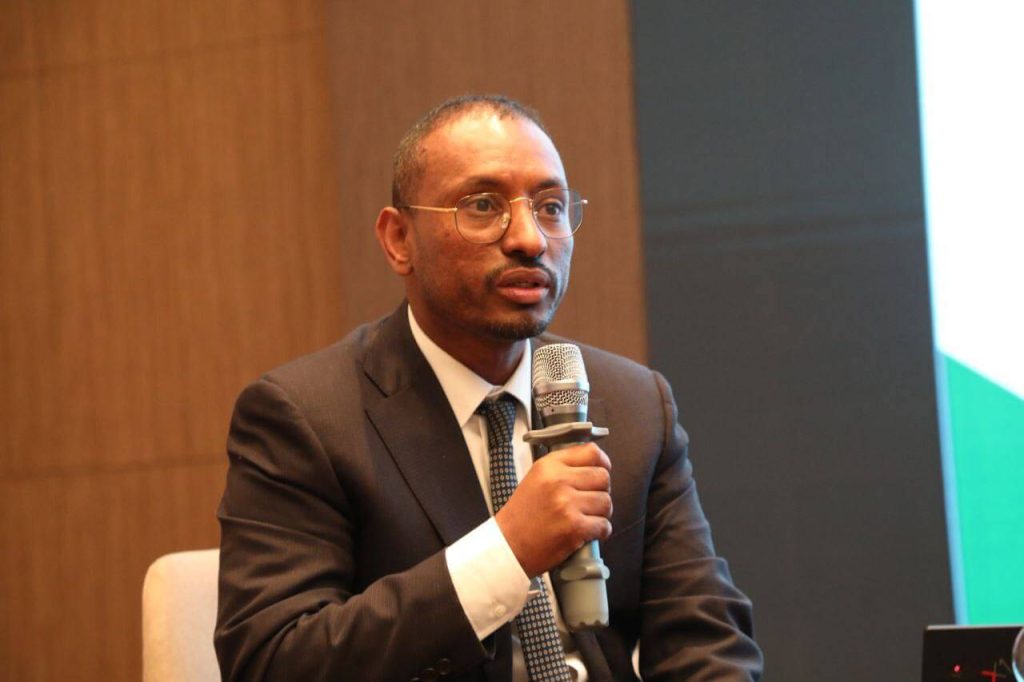Generation

Ethiopia: Egypt 'Scrambling to Create Obstacles' Ahead of GERD Inauguration: Electric Power CEO

Addis Abeba — Egypt is "scrambling to create obstacles" following Ethiopia's announcement that the Grand Ethiopian Renaissance Dam (GERD) is set to be inaugurated soon, according to Engineer Asheber Balcha, CEO of Ethiopian Electric Power (EEP).
Speaking at a press briefing held today at the Skylight Hotel in Addis Abeba, Eng. Asheber said that GERD and the Gibe III Hydroelectric Power Station were the largest contributors of electricity generated during the 2024/25 fiscal year.
The GERD generated 9,798 gigawatt-hours (33.2%), while Gibe III produced 7,148 gigawatt-hours (24.2%). He described GERD as Ethiopia's "second Adwa" and "a done and finished deal."
However, "following the news that the Grand Ethiopian Renaissance Dam will be inaugurated soon, Egypt is scrambling to create obstacles," he said. But, "nothing will change," he added.
The CEO's remarks come amid heightened Egyptian diplomatic lobbies in the Nile Basin state and the U.S. On 04 August, Egyptian Foreign Minister Badr Abdelatty met with Ugandan President Yoweri Museveni in Entebbe to reiterate Egypt's "existential concerns" over water security. Accompanied by Egypt's Water Resources Minister Hani Sewilam, Abdelatty denounced what Cairo calls "unilateral actions" by Ethiopia in the eastern Nile Basin and threatened to pursue "all necessary measures under international law," according to Egyptian media. The delegation also provided a development grant to a Ugandan youth-focused NGO and sought to deepen bilateral economic ties.
Ethiopia has maintained that the GERD does not harm downstream countries and supports regional development. Officials also cite the entry into force of the Cooperative Framework Agreement (CFA) in October 2024, which enshrines principles of equitable and reasonable use of the Nile River.
During the press conference today, EEP also reported its general performance for the 2024/2025 fiscal year and outlined plans for 2025/2026. According to Eng. Asheber, EEP generated 29,480 gigawatt-hours of electricity, exceeding its annual target of 25,423 GWh by 16%, or 4,056 GWh. This marks a 43% increase over the 20,596 GWh generated in 2023/2024.
The CEO attributed this growth to partial operation of GERD turbines, the commissioning of the Assela wind farm, improved spare parts availability, and effective maintenance by skilled professionals. Overall, 97.3% of the electricity came from hydropower, with 2.7% from wind sources.
Eng. Asheber said the total revenue for the year reached 75.4 billion birr, 93% from domestic power sales and 7% from foreign markets. Of this, $338.7 million came from exports, and 28.52 billion birr from the domestic market. EEP's foreign currency earnings stood at $330 million, with a target of $427 million in the coming fiscal year.
In response to a question from Addis Standard about whether foreign sales were prioritized over domestic needs, EEP Deputy CEO Eng. Andualem Sia stated: "No power has been sold without meeting domestic demand." He explained that while all existing transmission lines are supplied, infrastructure gaps persist in some regions. Exporting electricity, he added, is crucial for generating foreign exchange to expand transmission lines and extend access to underserved communities.
Looking ahead, EEP plans to build on this year's gains by modernizing plants, strengthening monitoring systems, and partnering with internationally recognized system operators. The goal is to fully operationalize the GERD and Assela plants and increase total energy production to 38,124 GWh in the 2025/2026 fiscal year.
Among the key projects, the Koysha hydropower plant is now 71.4% complete, the Aysha II wind project has reached 85.7%, and the Assela wind farm is already contributing to the grid.
Eng. Asheber also highlighted key challenges, including widespread theft of power infrastructure. He said 43 transmission towers collapsed due to theft and called for a nationwide awareness campaign. He further cited security concerns that hindered staff mobility and disrupted planned operations.
On electricity pricing, the CEO confirmed that the first tariff revision in a decade has been finalized and designed to protect low-income households.












